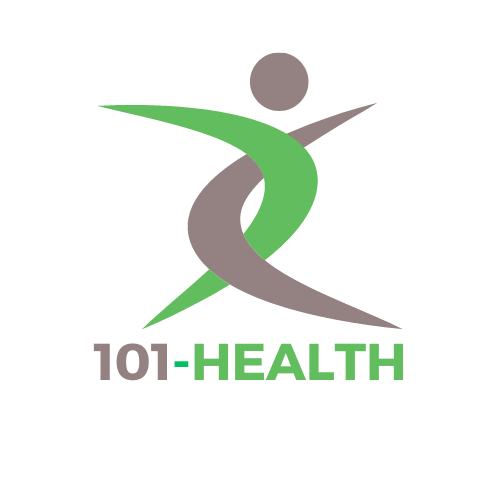Heart-healthy foods for beginners include fruits, vegetables, whole grains, lean proteins, and healthy fats. These foods provide essential nutrients and help lower the risk of heart disease.
Eating a heart-healthy diet is crucial for maintaining overall health and well-being. By focusing on nutrient-dense foods, you can support your heart health while enjoying a variety of delicious and satisfying meals.
Implementing simple swaps, such as using olive oil instead of butter, incorporating more plant-based proteins, and increasing your intake of colorful fruits and vegetables, can make a significant impact on your heart health.
We’ll explore the best heart-healthy foods for beginners, helping you kickstart your journey to a healthier heart. Let’s delve into the world of nutritious and delicious options that will benefit your heart and body.

Credit: www.amazon.com
Understanding Heart Health
What Is Heart Health?
Heart health refers to the overall well-being of your heart. It encompasses the proper functioning of the heart and the blood vessels that supply oxygen and nutrients to all parts of the body. Maintaining heart health is crucial for leading a long and healthy life.
Why Is It Important?
Heart health is essential for your overall well-being. A healthy heart reduces the risk of various cardiovascular diseases such as heart attack, stroke, and high blood pressure. By understanding heart health, you can make informed decisions about your lifestyle and diet to minimize the risk of heart-related complications.
Key Nutrients For Heart Health
When it comes to ensuring a healthy heart, consuming key nutrients plays a vital role. Incorporating the right nutrients into your diet can significantly contribute to maintaining heart health. Below, we discuss the essential nutrients beneficial for heart health, including fiber-rich foods, heart-healthy fats, and antioxidant-rich foods.
Fiber-rich Foods
Eating fiber-rich foods can help lower the risk of heart disease. Fiber aids in reducing cholesterol levels and controlling blood sugar levels, contributing to overall heart health. Some examples of fiber-rich foods include:
- Whole grains such as oats, brown rice, and quinoa
- Fruits like apples, pears, and berries
- Vegetables such as broccoli, carrots, and spinach
Heart-healthy Fats
Including heart-healthy fats in your diet can positively impact heart health. These fats, such as monounsaturated and polyunsaturated fats, can help lower bad cholesterol levels. Good sources of heart-healthy fats include:
- Avocados
- Various nuts and seeds such as almonds, walnuts, and flaxseeds
- Fatty fish like salmon, mackerel, and trout
Antioxidant-rich Foods
Antioxidant-rich foods are essential for maintaining heart health as they help combat oxidative stress and inflammation. Consuming these foods can assist in preventing heart disease. Some antioxidant-rich foods to include in your diet are:
- Berries such as blueberries, strawberries, and raspberries
- Dark chocolate with a high cocoa content
- Various vegetables like bell peppers, kale, and artichokes
Heart-healthy Foods List
Eating a heart-healthy diet is crucial for maintaining a strong cardiovascular system. By incorporating nutrient-rich foods into your meals, you can promote heart health and reduce the risk of cardiovascular diseases. In this article, we’ll explore a list of heart-healthy foods that are perfect for beginners.
Leafy Green Vegetables
Leafy green vegetables, like spinach, kale, and Swiss chard, are packed with vital nutrients. These greens provide high levels of dietary nitrates, which have been shown to lower blood pressure and improve overall heart health. Moreover, they are rich in vitamins A, C, and K, as well as minerals like potassium and magnesium, that contribute to heart function.
Berries
Berries, such as strawberries, blueberries, and raspberries, are not only delicious but also great for heart health. These vibrant fruits contain antioxidants, which help reduce inflammation and oxidative stress in the body. Additionally, they are high in fiber, vitamin C, and anthocyanins, all of which can help lower the risk of heart disease.
Fatty Fish
Fatty fish, like salmon, mackerel, and trout, are excellent sources of omega-3 fatty acids. These healthy fats have been associated with numerous benefits for heart health, including reducing inflammation, lowering triglyceride levels, and preventing the formation of blood clots. Regular consumption of fatty fish can contribute to a healthier heart.
Nuts And Seeds
Nuts and seeds, such as almonds, walnuts, flaxseeds, and chia seeds, are nutrient powerhouses that promote heart health. They are rich in unsaturated fats, fiber, and various vitamins and minerals. Regularly snacking on a handful of nuts or incorporating seeds into your meals can help lower cholesterol levels and reduce the risk of heart disease.
Whole Grains
Whole grains, including oats, quinoa, brown rice, and whole-wheat bread, are heart-healthy alternatives to refined grains. They are rich in fiber and other essential nutrients that support heart health. Adding whole grains to your diet can help regulate blood pressure, lower cholesterol levels, and maintain a healthy weight.
Tips For Incorporating Heart-healthy Foods Into Your Diet
Incorporate heart-healthy foods into your diet with these beginner-friendly tips. Boost your cardiovascular health with a variety of nutrient-rich options like fruits, vegetables, whole grains, lean proteins, and omega-3 fatty acids.
Meal Planning And Prepping
Creating a meal plan and prepping your meals in advance can make it easier to incorporate heart-healthy foods into your diet. By planning your meals for the week, you can ensure that you have the necessary ingredients on hand and avoid reaching for unhealthy options when hunger strikes. Consider dedicating a specific day each week to meal planning and grocery shopping. This will allow you to save time and reduce stress during the week. Additionally, try meal prepping by cooking large batches of heart-healthy dishes and storing them in individual containers. This way, you can simply grab a pre-portioned meal when you need it, saving even more time and effort.
Substituting Unhealthy Ingredients
One of the easiest ways to incorporate heart-healthy foods into your diet is by substituting unhealthy ingredients with healthier alternatives. For example, opt for whole wheat or whole grain bread instead of white bread, which is higher in refined carbohydrates. Use olive oil or avocado oil for cooking, rather than unhealthy fats like butter or margarine. Swap out sugary drinks with unsweetened tea or water infused with fruits like lemon or berries. When you’re baking, replace butter with mashed bananas, unsweetened applesauce, or Greek yogurt to cut down on saturated fats. These simple ingredient swaps can make a big difference in your overall heart health.
Smart Snacking Choices
Snacking is often a downfall when it comes to maintaining a heart-healthy diet. However, making smart snack choices is crucial for your cardiovascular health. Instead of reaching for a bag of chips or a candy bar, opt for heart-healthy snacks such as nuts, seeds, or fresh fruits and vegetables. These snacks are rich in fiber, vitamins, and minerals, which can help improve your heart health. Additionally, consider keeping a small bag of pre-portioned snacks with you, like trail mix or carrot sticks, so you have a healthy option readily available when hunger strikes. By being mindful of your snacking choices, you can maintain a balanced and heart-healthy diet. To sum up, incorporating heart-healthy foods into your diet doesn’t have to be a daunting task. By meal planning and prepping, substituting unhealthy ingredients, and making smart snacking choices, you can improve your heart health and overall well-being. Take small steps and make gradual changes to create a sustainable and enjoyable eating routine. Your heart will thank you for it!

Credit: www.amazon.com
Frequently Asked Questions Of Heart-healthy Foods List For Beginners
What Is The Healthiest Thing You Can Eat For Your Heart?
The healthiest food for your heart is a diet rich in fruits, vegetables, whole grains, lean proteins, and healthy fats.
What Are The Three Foods That Heal Your Heart?
The three foods that heal your heart are leafy green vegetables, fatty fish, and berries. These foods are rich in nutrients and antioxidants that support heart health. Incorporating them into your diet can help reduce the risk of heart disease and improve overall cardiovascular wellness.
What Are The 3 Foods To Quit?
The 3 foods to quit are sugary drinks, processed snacks, and fast food. These items are high in unhealthy fats, sugars, and preservatives, which can lead to various health issues. Cutting them out can improve overall well-being and aid in weight management.
What Foods Reduce Heart Attacks?
Foods that reduce heart attacks include berries, fatty fish, nuts, leafy greens, whole grains, avocado, and olive oil.
Conclusion
Eating a heart-healthy diet is vital for maintaining optimal cardiovascular health. By incorporating the foods mentioned in this list into your daily meals, you can promote a healthy heart while enjoying delicious and satisfying meals. Remember to choose whole and unprocessed foods, such as fruits, vegetables, whole grains, and lean proteins.
Also, be mindful of portion sizes and cooking methods. With these simple changes, you can take proactive steps towards a healthier heart and a happier you.






